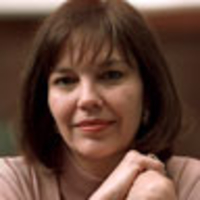
The invitation to the 57th National Prayer Breakfast arrived on what looked like official government stationery—right down to the gold seal of Congress embossed on the thick, cream-colored paper. It summoned me—an avowed agnostic from New York—to break bread, “deepen friendships” and “pray and counsel together” with “the president of the United States.”
Normally, I’m incapable of doing anything at 8 a.m. except walking the dog. But my friend Cal Thomas, a syndicated columnist and a colleague at Fox TV, who has been associated with the prayer breakfast since 1971, is nothing if not persistent.
So I accepted. And discovered that the prayer breakfast, in fact, is relatively light on prayer. Yet is a potent display of religion’s role in American politics. And it’s not just a breakfast, but a series of meetings for thousands of Christians and non-Christians from more than 180 nations who flock to Washington’s Hilton Hotel each February to network while discussing Jesus, war, peace, and their many religious missions and charitable projects at home and abroad.
Tony Blair recounted how he had once suggested ending a speech to the nation with “God Bless the British people.” “Really Prime Minister,” an adviser replied, “This is not America.”
The centerpiece of the events, however, is the breakfast, which every president has attended since Dwight Eisenhower hosted the first national gathering in 1953. Local prayer breakfasts date back further, to 1935, when, in response to labor unrest during the Depression, 19 businessmen in Seattle met over breakfast to discuss ways to expand care for the poor. Similar prayer groups began sprouting up throughout the land, then members of Congress followed suit. “We check our party affiliations at the door,” said Rep. Vernon J. Ehlers, of Michigan, a co-chairman of today’s event.
The Hilton ballroom overflowed with some 3,800 guests who paid $175 each to munch on fruit and muffins. In the main hall, tables of ten were so closely packed that fellowship was inescapable. I waved to the new Algerian ambassador, who was busy schmoozing with one of the five state leaders in attendance. Secretary of State Hillary Clinton worked the crowd as she inched her way to the dais; newly appointed senator of New York Kirsten Gillibrand was chosen to read scripture.
The keynote, known as the “message,” was delivered by former British Prime Minister Tony Blair, who soberly warned that history would condemn those who used their faith to corrupt and kill in God’s name. But in a lighter mode, he recounted how he had once suggested ending a speech to the nation with “God Bless the British people.” “Really, Prime Minister,” an adviser replied, “This is not America.” To a standing ovation, he ended his sermon by urging God to “bless us all.”
President Obama’s speech, by contrast, was coolly cerebral. He confessed that he had not been raised “in a particularly religious household.” His father had been “born a Muslim but became an atheist;” his mother, whom he called the “kindest, most spiritual person” he had ever known, was “skeptical” of organized religion. He had only become religious after college in the South Side of Chicago when he worked with “church folks” who “simply wanted to help neighbors who were down on their luck.”
In that spirit, Obama used the occasion to announce the creation of a White House Office of Faith-Based and Neighborhood Partnerships to replace a similar office established by President George W. Bush. The original office, often criticized for promoting the agenda of Bush’s conservative Christian supporters, will be reconstituted with a broader mandate to combat poverty. It will not “favor one religious group over another—or even religious groups over secular groups," the president said. It will work with any organization that aims to help “our communities…without blurring the line that our founders wisely drew between church and state."
Nevertheless, Press Secretary Robert Gibbs found himself fielding questions later that day about whether the office violated that constitutionally mandated separation.
Still, all of the morning’s “God talk”—as my friend Cal called it—made me nervous. I’ve seen too much evil in the world to still believe that a loving father is vigilantly looking out for us. But long before I became agnostic about God’s existence, I felt that spirituality was an intensely private affair. So watching political figures discuss how, when, and where they found Jesus was bound to make me uncomfortable, no matter how much comfort and joy it brought to the assembled penitents.
During my stint in prison for protecting sources, I was subjected to a steady diet of Sunday television evangelists. Many of my fellow inmates lapped up their dramatic stories of sin and redemption. But I found some solace, if not salvation, in the words of Joel Osteen, the pastor of Houston's Lakewood Church—America’s largest (and richest) congregation. Wearing a perpetual smile, he almost never dwells on the evil or the ugly. In fact, he quotes scripture too infrequently for many of the evangelists at the breakfast today, and rarely ventures into the realm of politics.
Joel is the Oprah of televangelists, with a message of self-esteem and self-improvement that has universal appeal. “Become a Better You,” published in 2007 as part of a multi-book contract estimated to be worth $10 million to $13 million, offers “seven keys to improving your life every day.” The book, which had a first printing of three million copies, advises me to “Stop Listening to Accusing Voices” and “Develop a Habit of Happiness.” While it may sound a little selfish, he writes, “your first priority is to take care of yourself.”
That’s a message I can embrace without a leap of faith. Maybe next year, he’ll come to Washington to pray.
Judith Miller is an author and a Pulitzer Prize-winning former investigative reporter for The New York Times. She is an adjunct fellow at Manhattan Institute, a contributing editor to its magazine, City Journal, and a Fox News commentator.






